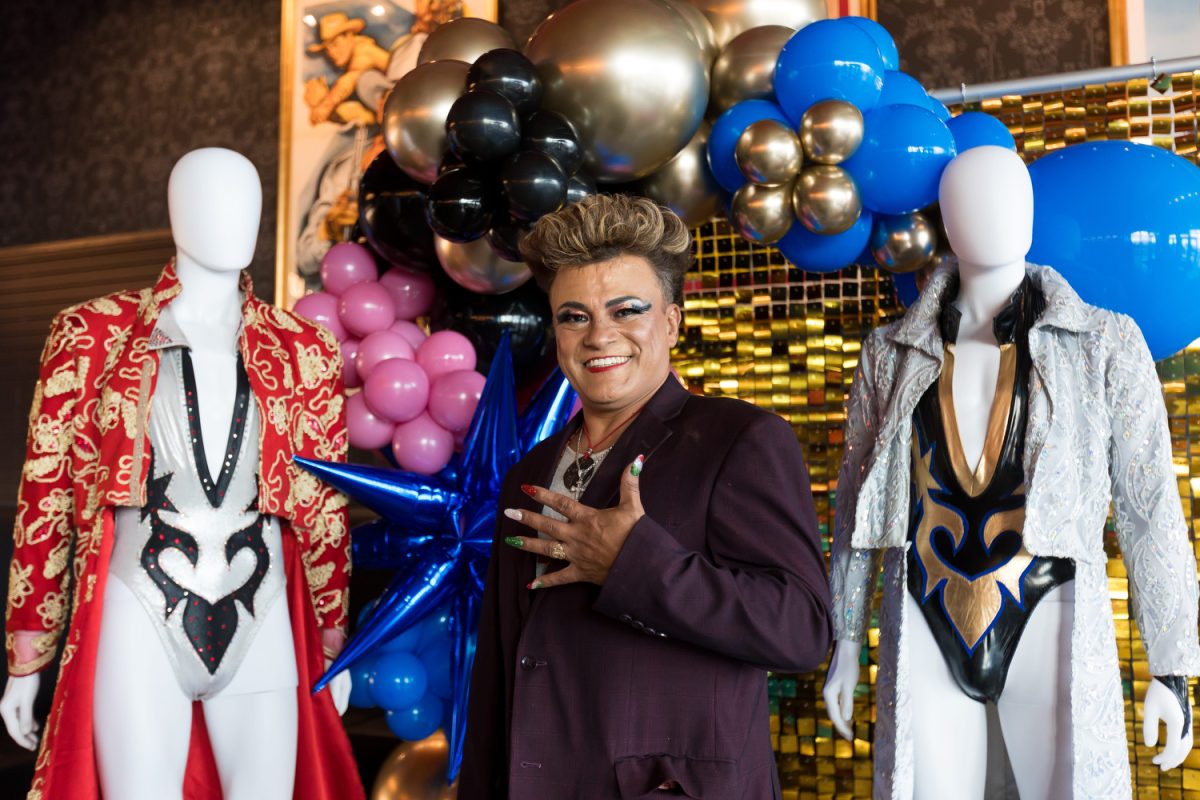As soon as the opening shot lit up the screen, one thing was apparent about Roger Ross Williams’ movie “Cassandro”: It is an incredibly emotional story.
The film was made in a more compact 1:33:1 aspect ratio, giving it a more boxy appearance. So, from the opening shot of “Cassandro,” the tight aspect ratio made the film feel more intimate and personal.
That intimacy is felt throughout the entirety of “Cassandro,” which depicts the true story of an amateur wrestler from El Paso, Texas, who embraced his sexuality and flair for the theatrics to become a lucha libre legend.
Saúl Armendáriz, played by Gael García Bernal, grew up as a massive fan of lucha libre, the theatrical culture of Mexican wrestling. When he eventually joined the wrestling world, he struggled to find his stage identity.
But his colleagues, played by Roberta Colindrez and Bad Bunny, pushed him to be more open about who he really was when he performed. Saúl became an exótico, a wrestler who competes in drag or assumes traditionally female characteristics in their luchador identity, through which he donned the name Cassandro.
From there, the story was told like a traditional biography. Audiences saw the rise of Cassandro, his faults, his relationships, and the impact he ended up making on the lucha libre community.
The moments when the story focused on his affair, his relationship with his mom and his poor spending habits were when the film started to dip into its overused storytelling format. It’s not that the events of Cassandro’s life were uninteresting, but that they were presented in the same way any other drama would present them.
Where the film shined, however, is in its portrayal of self-acceptance. Throughout the film, the weight of his absent, disapproving father very clearly affected Cassandro, especially considering his decision to publicly express himself and celebrate his sexuality. This aspect of the film was well-depicted and made for a very touching sentiment.
In terms of the film’s visuals, Cassandro was always the focus of the frame as most of his closeup shots suggested. I felt much more connected to him because of this framing. If it wasn’t for the visual language, I don’t think I would have been as invested in the story.
Ultimately, Cassandro was an uplifting movie and, while it may not have been innovative in its storytelling, the story was successful in its use of genre standards to deliver an entertaining, crowd-pleasing film.



